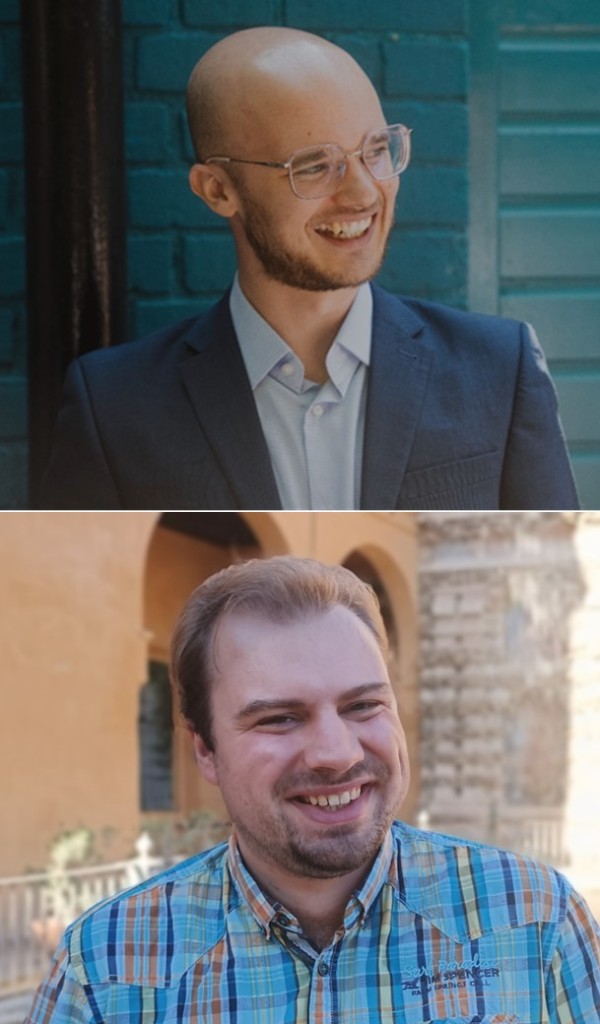Ahead of the annual SGSAH Summer School, Sam Cheney and Florian Wieser share their experience of organising and leading an online reading group with SGSAH.

What is it that the training of historians lacks?
That was a question the two of us – Sam Cheney and Florian Wieser, both based at the University of Edinburgh – were idly discussing on a sunny end-of-term afternoon in 2023. We had just successfully finished hosting the University of Edinburgh Centre for Global History’s Postgraduate Workshop series for that academic year, and between sipping coffee and patting ourselves on the back, we were reflecting on the various presentations we had heard. It had been a diverse set of presenters and their topics, at least in our minds, had little in common except a sense of vision and an abstract concept – in this case, the global.
It was this level of abstraction that was often needed but rarely taught in university level history. Historians are often required to deliver deep analysis of the past, but neither of us felt we had been systematically taught how to do this kind of analysis. What historians, ourselves included, so often lacked were the tools to build the kind of vision or abstraction we had observed throughout the workshop. That thing called theory.
And what was needed to fix that, we decided, was another workshop.
From a humble idea to something more
The prodigal creature born on this day was the workshop series entitled: “Theoretically History: Theory, Methods, and Analysis for History-Adjacent Research.” Its goal was to introduce key thinkers and schools of thought through joint reading and discussion of their texts, focusing on how ideas drawn from economics, sociology, anthropology, philosophy, and more could help us understand the past better and write about it more meaningfully. As we turned our initially vague idea into a full eight-session schedule, we contacted SGSAH – which funds both of our PhD projects – and were lucky enough to have them platform the workshop.
We were originally hoping to attract a small but enthusiastic group of PhD students from across Scotland who were willing to give up their all-too-scarce time and energy to meet with us and discuss theoretical literature both old and new. To our great pleasure, and no small amount of surprise, over 100 people, from a dozen different higher education institutions applied soon after we publicised our workshop in autumn 2023. Over the coming months, we were delighted to welcome both one-time and returning attendees, to discuss and debate theories ranging from Marxism and poststructuralism, to indigenous studies and queer theory. Sessions were held on Zoom, with no one left out, and the format we had designed quickly proved to spark fantastic conversations.
Running the sessions

At the start of each session, we would first split our attendees into breakout groups of about three people so they could discern out the key ideas of the texts. Then, at about halftime, we reconvened as a whole and discussed the theoretical concepts we had learned about in a more critical fashion. The two of us would throw some questions – admittedly often quite provocative ones – into the room and the attendees were invited to share their thoughts and discuss how the particular bit of theory would fit with their own research. Through all of this, the two of us not only got to delve more deeply into theoretical literature ourselves, but also to learn with and from the vibrant early-career research community here in Scotland.
Closing remarks
PhD research in the Humanities is notoriously isolating, with long hours spent learning more and more about less and less. Overall, Theoretically History enables us to challenge this feeling. Firstly, it reconfirmed that there is great value in taking a step back from the disciplinary constraints of our own research projects, reconsidering the ‘big ideas’ that shape our discipline and that we all think we know. Secondly, and most importantly, the workshop reemphasised the fundamental importance of discourse (conversational, rather than Foucauldian) to us as PhD researchers. By simply talking to each other, we were able to embrace new ideas, question pre-existing assumptions, and develop our research practice in creative new directions. We hope that this workshop has left a lasting impact on attendees and can serve as a model for others to follow.
Now that our online workshop has come to an end, we are still looking forward to one final event in the Theoretically History calendar. During the 2024 SGSAH Summer School, we are excited to welcome participants to meet in-person for the first time in Glasgow to discuss how we are all building on this theoretical literature in our current research practice.
Join us in Glasgow this June at the SGSAH Summer School.

Sam Cheney (top) is a PhD student in History, in his fourth year at the University of Edinburgh. He is a historian of music and the British Empire, whose research focuses on Perceptions and Representations of Chinese Musicality in Britain, 1860 – 1939. This project explores how music and sound influenced British conceptions of China’s racial and civilizational profile in the nineteenth and early-twentieth centuries. In the spring of 2023, he pursued this work as a Visiting Graduate Researcher at the Department of Ethnomusicology, UCLA. You can find him on X (Twitter) as @SamuelCheney8.
Florian Wieser (bottom) is a third-year PhD student in History at the University of Edinburgh. He has previously studied at Ludwig-Maximilians-University in Munich and the Universidad Autónoma de Madrid, as well as recently completing a Visiting Doctoral Researchership at the Universidad Nacional Autónoma de México in Mexico City. His current project investigates the effects the conflict between the French and Spanish colonial empires had on Black and Indigenous populations in the seventeenth-century Caribbean area. His other interests include global history, history of medicine, sexuality, and the body, and theoretical approaches to historical analysis. You can find out more about his work here and find him on X (Twitter) @FlorianWieser95.

